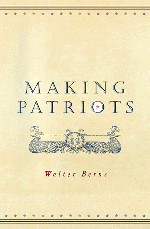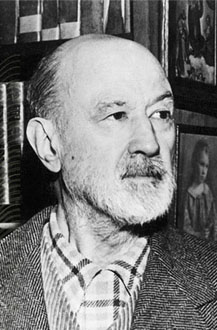
Yesterday I took a bit of a holiday from composing. I did a little work on the Holy I am writing, but for the most part I spent the day goofing off. Didn’t touch the harpsichord.
By the time Eileen got home from work, I wasn’t sure where the day had gone exactly.

I corresponded with a parishioner who pointed to a hymn text he thought deserved to be better know. The text, “Sometimes a light surprises the Christian while he sings,” is one I know well and when I checked back it seems we did sing it a few years ago.
While poking around on the web, I found an interesting setting of the text to the melody, THAXTED. This melody is taken from Holst’s “Planets,” which I proceed to listen to later.

Did my Mom’s bills and our bills. I downloaded U of Chicago’s monthly free ebook, Making Patriots by Walter Berns (link) and proceeded to read it while I treadmilled.

Although the author is a bit on the conservative side for me (he thanks Judge Bork among others in his introduction), a quick google persuaded me that his background and expertise are credible.
And I enjoyed what I read quite a bit. Obviously U of C made this book available to sort of coincide with the fourth of July.

I was gratified to see Berns distinguish between “patriotism” and “nationalism.” The latter he defines in a bit of a pejorative way as “glorification” of a nation. The former he equates with “citizenship.” I often think of the responsibilities of citizenship. Bern goes on and defines citizenship in this way.
” [C]itizenship is … more than legal status and the enjoyment of the “privileges or immunities” attached thereto; in its larger sense, it is a sentiment or state of mind, an awareness of sharing an identity with others to whom one is related by nationality, if not by blood, a sense of belonging to a community for which one bears some responsibility. In a word, citizenship implies public-spiritedness, and it is in this sense that it cannot be taken for granted; like patriotism, it has to be cultivated.” (emphasis added)

For me, my awareness of my identity is wrapped up with all the things I love about America: Jazz, the Blues, the writers, the poets, and godhelpme the poetry of living in a country which values its stubborn individualism and keeps striving to improve civil rights of all.

Bern points out that America is the only country actually founded on principles. These principles (republicanism, democracy, the rights of individuals to freedom and fairness) have played a part in other countries of course. But America grows out these, other countries have adapted into them (French Revolution). This is an interesting thought.
I believe pretty strongly in these principles. Nationalism repulses me, but not so actual patriotism.
This weekend as I do each fourth of July I will pull out the music of Charles Ives and listen to it.

Ives music sounds very American to me. It jolts me back into my love and admiration for my country at its best.
Without America, not only would there be no Blues, no Jazz, no Rock and Roll, there would be no Charles Ives, no Mark Twain, no Frank Lloyd Wright, no David Foster Wallace, and so on. All great art and thought seems to me to grow out of a context. Take away the context and its hard for me to imagine the art and ideas.
I agree.
I agree with your assessments of the Bern book. He wrote a much larger volume on a similar subject. Also, a UC publication.
Ah yes. In my undergrad conducting class, we conducted THAXTED (AKA, “I Vow to the My Country”, which appears in the middle of Holst’s “Jupiter.” Naturally, after playing it twenty-something times, it was cemented in my head for about a week.
Also, in reference to American music, we cannot forget Aaron Copland and Samuel Barber. I am not saying that Ives doesn’t sound American, but that these guys do too.